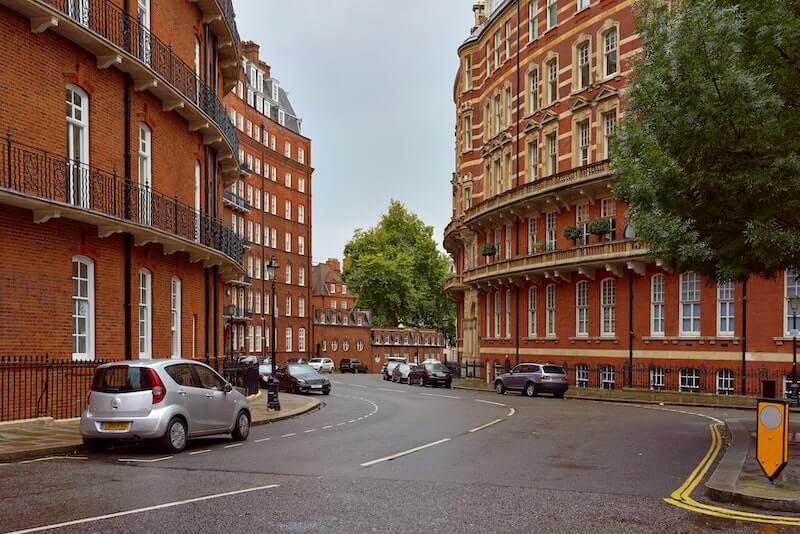How to sub-let your property?
You may have heard of the term sub-letting, but what does it mean? There are some legal complications which confuse people and it is important to know what they are. It is a common belief that once you are a tenant, you can just do what you want with the property. However, this is certainly not the case.
When you are renting a property, you will likely be renting directly from a landlord who owns said property. It is equally possible to rent directly from another tenant who has rented the property from the landlord/owner. The latter is what is known as sub-letting.
In this guide on Octagon Capital will provide all the information, you will need on the topic of subletting and whether or not you will be allowed to sublet their home.

Before we get started, here are some top tips on subletting:
- Check what it says in your tenancy agreement
- In most cases, you will need to seek out permission. Therefore, you should write to your landlord explaining the situation at hand and ask if they will give you their consent to sub-let.
- Be aware that if you do not do things properly, it may lead to problems on the long-term and down the line.
What is subletting?
Subletting refers to when an existing tenant let’s all of part of their home to another person. That person is known as subtenant, and they have a tenancy for all or part of the property which is let to them. They will also have exclusive use of the accommodation that has been let to them.
For example, if it is the case that you decide to sublet your home, you are giving up possession of it. The subtenant would have exclusive use of the property and you could only enter it with their permission.
When a property is being sublet, the owner is known as the head landlord, because now there are technically two with the tenant letting to the subtenant. The tenant they rent to is called the ‘mesne’ tenant, meaning intermediate and is pronounced as ‘mean’. The mesne tenant then, of course, rents to the subtenant.
Is subletting just lodging?
This is where many people become confused, but there are differences between subletting and lodging.
A subtenant and a lodger can both rent rooms. However, a subtenant can also rent an entire property rather than just part of it. The main difference here is that a subtenant has exclusive use of their rooms and the lodger does not. The landlord will need to give their permission before they can enter the subtenant’s rooms. On the flip side, a lodgers landlord can enter the lodger's room without permission and often does so to provide services such as cleaning.
If you share some of the accommodation with your landlords such as the bathroom or a kitchen, then the rights you have are similar whether you are a subtenant or a lodger. People who share accommodation with their landlord are generally known as excluded occupiers. This is a term which is often used in the housing to help to identify your housing rights. Excluded occupiers as such have very limited rights.
What happens if you sublet your home and you are not allowed to?
You will need to seek permission before subletting all or part of your home. If you are denied permission, you are not going to be legally allowed to do so. If you do anyway, then your landlord may take action against you if they find out. For example, they may take legal action to evict you for breaking the terms of your tenancy contract.
If you are in social housing and you sublet your home unlawfully, you will be committing a criminal offence.
What are the tax rules for double glazing windows?
Double glazing has long been a major concern for landlords and those who sell it since the early 2000s. It was announced way back in the 1998 Budget that from April 2001, a concession which was to allow landlords to offset general refurbishments at their properties against tax would be eliminated.
For many households, having double glazing will mean smaller energy bills and a warmer home. In fact, 51 per of people who were surveyed in a Which? report who had double glazing said that they did buy it to make their home warmer and to reduce their energy bills by 44 per cent.
Since the abolishment, landlords have not been able to offset refurbishments against tax. Instead, they can only claim for repairs, not improvements.
Furthermore, under these new rules, landlords would be able to get tax relief for something like repairing a broken window frame. However, if that window was replaced with double glazing, this would actually be considered an improvement and therefore it would not qualify to be claimed against tax.
Change in Rules
However, a tax case had forced the Inland Revenue to change the policy surrounding double-glazing. Double glazing does not qualify for tax relief and will even be backdated in some cases.
When the rule change came in, landlords could claim for windows which had already been installed as long as they met the deadline for making changes to their self-assessment forms. Now, any double glazing installed can simply be claimed on tax.
The Revenue stated that:
"In the past, we took the view that replacing single-glazed window with double-glazed windows was an improvement and therefore capital expenditure.
But times have changed... We now accept that replacing single-glazed windows by double-glazed equivalents counts as allowable expenditure on repairs."
The change was warmly welcomed by Malcolm Harrison of the Association of Residential Letting Agents welcomed the change. He said that: "It's good news for landlords and good news for tenants."
Glazing Over
Despite such good news for landlords, finding out whether “repairs” can be offset against tax can be rather confusing still, as many of the things done to a home can be classed as a repair and an improvement.
To shed some light, Mike Warburton, a partner at accountant Grant Thornton said that the system needs to be simplified. He said:
"It is confusing to know what is and what isn't allowable under the current rules.
"I accept that if the improvement is an extension or a loft conversion it may be unreasonable.
"But the logic is that if I am repairing and upgrading part of the facilities of the house, such as the kitchen, I don't see why it should not be an allowable repair."
Can you replace double glazing yourself?
Installing new double-glazing needs to meet certain building regulations. This needs to be approved by either an installer who is registered with a Competent Person’s Scheme or by a Building Control who can verify the work themselves. Because of this, it is not really advisable to try and install double glazed windows on your own. If you are a tenant, it is best to leave it up to your landlord to sort out.
Bridging Loans lends out nearly £4bn in 2018
In the last 12 months, it has been reported by the Association of Shirt Term Lending (ASTL) that the bridging loans industry has collectively lent a whopping £3.98bn.
This figure is 21% over the last year. However, the second has seen a slight contraction in the third quarter of 2018 compared the three months preceding that. The value of the loans written and applicants were down 0.6% and 3.3% respectively.

When you compare this to the same quarter of last years, the value of loans written in the quarter increased by 12.6%. Speaking in annual terms, applications were also up by 8.9% compared to the year which ended in September of 2017 - this totals up to £20.5bn.
It was noted by the ASTL that although applications did tend to be unreliable indicators and were dependent on how many lenders were offered the same deals, it did actually highlight how large the sector had become.
Loan books up
If you total up the loan book value, it appears to have continued to climb with a rise of 2.1% compared to Q2 and an increase of 16.6% at the same point, but last year.
The CEO of ASTL, Benson Hersch, said Figures for Q3 2018 show an ongoing year-on-year upward trend. Our members continue to provide flexible and useful services to customers who require finance for a whole range of purposes. Despite current political and economic uncertainties, lenders are very much doing business as usual.”
What is a bridging loan?
Bridging Loans are short-term loans which are designed to ‘bridge’ the gap found between a debt coming due and the main line of credit becoming available. In addition, they can also be used to simply act as a more general short-term loan in certain, pressing circumstances.
Bridging loans may be invaluable in helping an individual to make a property purchase that they would other not be able to be possible. For example, if someone cannot get a mortgage in place and they need to purchase the property now, a bridging loan would help to facilitate this.
The loans are essentially designed to help people complete a purchase of a property before they sell their existing home by offering the people access in the short-term to money at a high rate of interest.
Some people have started viewing bridging loans as a simple alternative to mainstream lending. While a bridging loan may sound like a tempting option in this capacity, before you take one out you should think about your strategy. If you are treating bridging loans in a traditional way, this might be, for example, getting a mainstream mortgage or a buy to let mortgage, or selling the property altogether.
Who are bridging loans aimed at?
Typically, bridging loans London and UK are aimed at landlords and amateur property developers. This includes those who are purchasing at auction where a mortgage is needed quickly.
They are often aimed at wealthy or asset-rich borrowers who want a straightforward lending method for residential properties.
Who are Octagon Capital?
Here at Octagon Capital, we are a licensed broker which aims to help you to compare bridging loans in the UK. These loans can range from £50,000 to £25 million.
In terms of your application, we have partnered with SPF Short Term Finance, a team of bridging loan brokers, in order to process any application you submit. You can apply online and an advisor from the SPF Short Term Finance team will be directly in touch with you shortly about the status of your application. If you please, you can call us for a quote today on 0333 414 1491. We are open Monday-Friday from 9am to 6pm.
Ways to make your property more energy efficient
It is becoming increasingly more popular to make being energy efficient a priority in people’s lives. This includes making the home more energy efficient for the sake of the environment and in the hopes of saving a bit of cash in doing so. Both of these things are beneficial to you, your family and the world around you, so what are you waiting for?
With the colder months approaching, now is the perfect time to get on the road to checking your home is as energy efficient as it can possibly be to help keep those utility bills down this year. A survey which was conducted recently by Home Heat Helpline has found that
What can you do to make sure your home is more energy efficient? There are plenty of smaller and larger changes that you can make to ensure that you are doing it properly. In this guide on Bridging Loans, we are going to be going through the most popular and most effective ways alike to make your home the most energy efficient possible.
Insulate your Loft
A lot of heat from your home is lost from the roof, and if it is not efficiently insulated you could be practically burning money. The Department of Energy and Climate Change in the UK stated that British homes wasted around £500 million on pumping heat into their properties only for it to escape through poorly insulated walls and roofs.
With decent insulation, you could save about £160 per year on average. So this may be very worth your while in the long run.
Switch to Solar power
Solar panels in homes are becoming increasingly more popular as they can save you money and they also are very environmentally friendly. Many people
who opt for solar panels in the UK recognise that they do not work so well in the winter time so they use a combination of traditional means of energy and the solar energy during this period, which will save them a lot of cash in the process. However, it must be noted that no kind of weather can stop the panels from producing power at all – some energy will always be produced.
Solar PV panels are the most efficient. They generate energy and it is though that the average home could provide 40% of its power from these alone. On average, PV panels cost around £12,000 and last for around 30 years.
Solar energy comes at a high cost in the initial installation, but you are very likely to see a large return in the investment over the years.
Upgrade your boiler
Inefficient boilers could be racking up around £200 in additional cost to your energy bills. That means that upgrading your boiler could be a perfect way to cut down on what you are paying long term.
Keep an eye on your energy consumption
Are you aware of how much energy you are actually using and wasting? It may be wise to invest in an energy monitor, this only cost around £30 but you can actually get them for free from certain gas and electricity providers.
This will give you an idea of how much energy you are using that is really unnecessary. This can act as a wake up call and you may have the motivation to change habits such as leaving lights on and keeping the water running too long.
Research conducted by British gas highlights that having one of these monitors can help household to save as much as £110 a year simply by cutting back on how much energy they consume after becoming aware.
Ways to get the best rate on your mortgage
When looking to purchase a property you will more than likely need to take out a mortgage, and failing that a bridging loan if you cannot afford to wait for a mortgage to clear. When looking for a mortgage deal, obviously you will ideally want to find the best deal for you and there are ways in which you can ensure this. Recently, mortgage rates broke their respite, bouncing back after a recent slide. The 30-year fixed-rate mortgage averaged at 4.53% as of the 12th of July 2018. This is an increase from the previous weeks at 4.52%.
We have put together a list of things which you can do to help you get the best deal on your mortgage possible.

Your credit score and credit history
Getting the best rate on a mortgage starts with your credit score and your credit history. Both are a crucial part of obtaining any type of finance, including a loan, a credit card or, of course, a mortgage. Basically, the lender’s underwriting team will use your credit history and current credit score to measure how much risk you pose as a borrower, as well as the rate they are willing to offer you.
If you are unaware, your credit score essentially summarises what is in your credit report, represented by a number. The highest indicating number is 999 and the lowest is 0. You can use your credit score to understand how your credit history or report might look to a lender. With this knowledge, you can attempt to boost your credit score by doing a number of recommended things including always paying off any debts on time and in full, and not applying to too many lenders at one time.
Pay the largest deposit you can reasonably afford
This may seem strange to some, but the larger your initial deposit is, the less you will ultimately need to borrow. Furthermore, your mortgage provider will see you as less of a credit risk if you put down a larger amount at the deposit stage. In exchange for a bigger deposit, you will usually be offered a lower interest rate.
Lenders tend to offer the best deals to those who put down 40% or more. If this is unrealistic for you, you can usually find good deals with a deposit of 20%. However, if you go any lower than this, expect the interest rates to shoot up.
Shop Around
Like when looking at any type of loan, your best bet is to shop around to compare what deals are available to you. Your bank is often a starting point when thinking about taking out a mortgage. If you are already a member of the bank you approach, you may find that they offer you discounts or rewards – however – this might not always be the best deal.
It is no secret that a mortgage is one of the biggest financial commitments you may ever take out. Therefore, it is very important to do your research and not just jump on the first deal you find which looks alright.
Beware of fees
The interest rate that you receive will have a large impact of your monthly repayments as well as the overall cost of your mortgage. However, this shouldn’t be the only thing that you consider. Be aware that with a mortgage comes many fees, some which are not so explicit. In some cases, the overall cost of the fees may actually outweigh the benefits of agreeing to a mortgage with a lower interest rate.
The three most common fees are:
- The arrangement fee
- The overpayment fee
- Early repayment fees
The arrangement fee is what you will pay your lender in order to cover the administrative cost of setting the mortgage up. This fee can be upwards of £2,000.
The overpayment fees involve overpaying your mortgage. This can save you money in interest and help you to repay your mortgage sooner. It is typical that lenders will let you overpay by up to 10% of the outstanding amount each year. However, some lenders want to dissuade overpayment and put a fee in place to ensure that it is not worth it.
The early repayment fees are similar to overpayment fees in that they are in place to dissuade you from paying off your mortgage early. The reason for this is because the lender will lose out. Not all lenders have the fee in place, so check this out before filling in any applications.
Where Do Celebrities Live in London?
London is not only one of the coolest places in the world to live, it is also one of the most expensive. Naturally, alongside the entertainment industry being focussed there, Celebrities are therefore drawn to living in England’s Capital city.
But it is no secret that London is a vast place, so which spots are bursting with famous faces? Celebrities tend to want to live in private properties with access to green spaces as well as shopping and lavish restaurants. It is no surprise then that celebrities tend to gravitate towards certain areas in London which offer a vibrant and private lifestyle, including the following:
- Kensington and Chelsea
- Richmond
- Notting Hill
- Highgate
- Fulham
- Clapham
- East Dulwich
Here, Octagon Capital take a look at these celebrity-heavy neighbourhoods in London.
Kensington and Chelsea

Probably one of the better-known areas where the rich and famous reside is Kensington and Chelsea. It is known to house some of the most outrageous basement bunkers which are complete with swimming pools and private bars.
The townhouses in this area often have the added feature of rooftop gardens and state-of-the-art fixtures.
Some famous people who live in this area include British Rapper Stromzy, rock legend Eric Clapton, Madonna and Rowan Atkinson. Fashion designer Paul Smith’s Kensington based mansion is worth a whopping £135 million!
Richmond
Richmond is famous for big pads and famous faces. An extremely expensive place to buy or rent, it is a haven for the UK’s celebrities.
These celebrities include Mick Jagger, Tom Hardy, Pete Townsend, Jerry Hall, David Attenborough and Rick Astley. Brad Pitt and Angelina Jolie has bought a £16 million property here back when their marriage remained intact.
Notting Hill

Notting Hill is home to wonderfully colourful homes in rows, which are both highly desirable and highly expensive. Notting Hill is particularly famous following the 1999 romantic comedy of the same name, starring Julia Roberts and Hugh Grant.
This affluent area of west London is prized for the renowned market where you will find plenty of vintage Chanel, Hermes and Dior.
Music stars Robbie Williams and Bjork are said to reside in Nothing Hill.
Highgate
Situated in North London, Highgate is one of the sleepier areas of London – this is probably why so many celebrities love it there. It is slightly out of the way of the hustle and bustle of central London.
Famous faces who live there include supermodel Kate Moss and actor Jude Law.
Fulham
The attraction of independent boutiques, notable hangout spots like the Durrell Arms and the fabulous brunch spot, Manuka Kitchen, is enough to bring in the celebrities to the area on a permanent basis.
There is an area of Fulham Road which is known to the locals as “The Beach”, which is beautiful and a place you would want to spend your time. You will find this area lined with convertible porches parked outside of galleries and gastropubs.
Clapham

An up and coming area of south London is Clapham. It has been dubbed one of the most fashionable areas to live and is certainly popular with the younger generation, as well as celebrities.
It is a usual sight to stroll through Clapham Common on a Saturday morning and see people working out in the sun, taking their dogs for a walk or sunbathing on the grass.
Notable and powerful celebrity women seem to favour Clapham, including Margot Robbie, Vivienne Westwood, J.K Rowling and Vanessa Redgrave.
East Dulwich
Located in South East London, East Dulwich is an area which is known for being in the city, but feeling like a village. Because of the village vibe and the location is slightly outside of central London, a host of celebrities’ call East Dulwich home. To name a few, Tom Cruise, James Nesbit and Steve Frost have all had property here at one point or another.
Reasons You Might Be Declined For a Secured Loan
If you are looking to apply for a secured loan, it is important to know that there is a possibility that you may be rejected and if you know the reasons for that, you may be able to prevent it. You may have already applied for a secured loan only to be declined, but are unaware of why this has happened.
In this guide, for your clarity, we are going to look at some of the reasons that you may be declined for an application on a secured loan. But first, let’s look at what a secured loan actually is.
What is a secured loan?
A secured loan can also be referred to as a homeowner loan because a secured loan has the debt associated with it linked (or ‘secured’) to the loan borrower’s property. Secured loans, thus, are only available to be taken out by people who already own or are buying their own homes. A secured loan can be used to borrow anything from the £5,000 mark and upwards.
With a secured loan, the amount you are entitled to borrow, the duration of the loan agreement and the amount of interest which will be offered is wholly dependent on personal circumstances and the amount of free equity which you have in your property.
But if you do qualify as a homeowner, why might you be rejected by a lender for a secured loan?
Poor Credit History
Like with any type of monetary lending, your credit score can make or break your chances of borrowing or can affect the kind of deal available to you. You can read more about your credit score here.
If you have a history of missing payments or failing to repay your previous loans or on your credit card, this can seriously damage your credit history and thus, make you look like more of a risk to a lender.
If this is the case for you, there are things that you can do to improve your credit score including:
- Always paying your credit card statement in full, each month
- Only applying for loans when you need them – too many credit search footprints on your file could decrease your credit score
- Always pay back loans in full, with the interest
Have Made Applications For Payday Loans
Some secured lenders consider payday loans to be a very high risk financial solution and means that you might have been desperate for funds. Not all secured lenders view it this way. One major mortgage provider recently said that payday loans (Source: MY JAR) were fine provided that they were paid off on time. Some providers will not consider it an issue if it was several years ago. Other similar high-cost credit products include cash advances, pawnbrokers and logbook loans.
A Spouse with Poor Credit History
You may have a good credit score, but in actual fact, your legal spouse's credit history may be your downfall when applying for a secured loan. Seeing as marriage ties you in more ways than one, one way is being financially linked, you are seen as a risk if your husband or wife does not have a good credit history attached to their name.
Especially with secured loans, since they are for homeowners, it is assumed that you help either out financially and that the mortgage and so on will be a mutual responsibly.
Your Collateral is Not Valuable Enough
The collateral that you have to offer in order to secure it against the loan may not be seen as valuable enough to the lender. To them, if your collateral is of less value, it is more of a risk lending to you as they will not get their payment back if you fail to pay it.
For a secured loan, your collateral could be your property or a car, for example. If neither of these is deemed valuable enough, your loan request may be denied.
In a similar way, you may only have little equity on your house at the point of application. Basically, what this means is that you do not own enough of the property to gain a secured loan.
How Much Are You Asking For?
Depending on your needs, you may find that you are needing to borrow a little amount or a larger amount. It is true that the amount you are wanting to borrow can play a part in the lender's decision on whether or not to grant you a secured loan.
What Are You Planning on Using The Secured Loan For?
Likewise, a secured lender may refuse you based on the reasoning behind your loan. Many lenders will ask you this question as part of the underwriting process and if it is something they deem unfit, they simply will not grant you a secured loan.
Bridging loans
You may find that you are struggling to get a mortgage in place and time is running out before you lose out on a property which you are hoping to purchase. An option for you might be a bridging loan.
Essentially, a bridging loan is a type of short-term finance which aid you in ‘bridging the gap’ between you and the mortgage, allowing you obtain the property without a mortgage in place prior. Rather than losing a potential property, you can apply for a bridging loan and receive the money in one lump within a few working days. Once the property has been purchased and has access to more finance, you will be required to repay the loan.
Do you have to tell your mortgage provider if you change jobs or get pregnant?
Since changing your job or falling pregnant can have an effect on your finances, you may be earning or less in your new job and obviously, having a child is another outgoing expense.
Therefore, is it protocol to let your mortgage provider know about either of these life changing events?
According to a recent survey created by uSwitch, one in ten women between the ages of 25-45 said that they felt as though they had been discriminated against by lenders once they had expressed their desire to start a family.
Affordability rules which came in 2015 mean that some firms are now required to ask questions about changes in income.
If you fall pregnant
Women have advised to be made aware of the pregnancy pitfalls when applying for a mortgage or are currently paying a mortgage. Due to the change in rules, new parents who are applying for a mortgage from some of the largest lenders are being asked to prove that they will be returning to work after their maternity and/or paternity leave before they can be included in their usual affordability checks.

If the couple or individual is not going to be returning to work within three months, their “return to work” income may not be included in the overall checks. As a consequence, the price of the mortgage may be calculated based on their pay during the period of maternity or paternity leave.
Lenders such as Barclays, RBS and NatWest base their decision on the salaries on the applicants will be receiving after they have returned to work rather than the pay they will receive whilst they are on leave, which seems far more logical.
What can lenders ask about pregnancy?
Lenders are prohibited from asking you whether you are currently pregnant, planning a pregnancy or on maternity leave when you apply for a mortgage. This question would go against the Equality Act 2010 as plain discrimination.
Nevertheless, tighter lending rules mean that they are lawfully required, not just entitled, to take into account any future changes to your incomings – this then works for if you are just changing jobs as well. Of course, having a baby can have an impact on both parties so this should be taken into account by the lender.
They will ask if you are aware of any changes to your income in the near future and if you answer yes because of a pregnancy, the underwriter will look at whether you are able to afford the mortgage as though you already have an additional dependent. This basically means they will factor in any child care expenses.
You can also expect to be asked about your salary on your return to work, the length of your maternity or paternity leave and if you are planning to return to work full-time or part-time.
If you are changing jobs
It is the same premise as if you were to fall pregnant, lenders are now required to take into account any income changes. This could work in your favour if you are getting a larger salary as this will mean you may be able to snap up a better deal on your mortgage if you can afford to pay more off each month. So if you change jobs with a mortgage in place, it is vital as well wise to let your lender know and inquire whether a better deal is available to you if your income has been increased.
According to the Council for Mortgage Lenders, the information about your change in financial situation is gathered to “try to reduce the risk of borrowers taking on debt commitments that could become unaffordable.” Therefore, lenders will ask if you are aware of any changes to your income in the foreseeable future (whether this is due to a new arrival or change in job).
Consider a Bridging Loan?
If you are in need of cash to buy a house urgently but do not have time to wait for a mortgage to clear, an option for you might be a bridging loan. A bridging loan is a type of short-term finance which essentially ‘bridges the gap’ between you and the mortgage, allowing you obtain the property without a mortgage being cleared. Rather than losing a potential property, you can apply for a bridging loan and receive the money in one lump within a few working days. Once the property has been purchased and has access to more finance, you will be required to repay the loan.
Things to consider when looking to buy a house
Buying a house is an exciting step in your life, but it is also one of the biggest financial commitments to will ever make most probably. Therefore, you have to make sure you do it right – taking into consideration everything possible before making the jump. A big financial commitment where small mistakes can cost you even more than expected.

Nonetheless, with the introduction of the government scheme Help to Buy, owning your own house is becoming more of a reality for more people. In consequence, there are more people in need of advice as to what they should be looking out for when going about buying their first property.
You wouldn’t just spend 20 minutes making a decision about a property which you are going to live in for the foreseeable future, or even for the rest of your life! Some would, which is why we have put together this guide which highlights some of the key things you need to look at when visiting a potential property.
Should you be buying at this moment in time?
Look at the current climate of the housing market. It is true that we have had some devastating years where house prices were so high people simply couldn’t afford to move and years where people were receiving only a fraction of what their house was actually worth.
As a buyer, you should concentrate on whether buying is affordable and will ultimately be the best decision for you in the long term. This is better than buying in the mentality that you should be a homeowner by a certain stage in your life.
Mortgages
With buying a property comes a need for a mortgage, for most of us anyway. Buyers need to factor into the budget how much they can realistically spend each month paying back their mortgage.
As mentioned previously, the Help to Buy scheme has been in place for some years now. As a feature of this, the government have helped to increase the choice of mortgages for people with 5% to put down. However, borrowers will pay a premium at this level. Mortgage deals become a little for competitive if you have 10% or 15% to put down and the really decent rates come in once you can put down 25%.
If you are in need of money to buy a house now but do not have time to wait for a mortgage to clear, an option for you might be a bridging loan. A bridging loan is a type of short-term finance which essentially ‘bridges the gap’ between you and the mortgage, allowing you obtain the property without a mortgage being cleared. Rather than losing a potential property, you can apply for a bridging loan and receive the money in one lump within a few working days. Once the property has been purchased and has access to more finance, you will be required to repay the loan.
Check out the overall neighbourhood
When looking to buy a house, the location should be just as important to you as the property itself. There is no point living in a lovely house in an area which is worn-down and crime-ridden. At the end of the day, you can do a house up in a nice area, but you cannot move a house out of a bad one.
We advise that you should take some time after finding a property that you like to explore the neighbourhood. See what it has to offer – are there shops, restaurants, pubs, parks and so on? What are the local schools like? Is the town clean and presentable, or is it covered in litter and graffiti?
Is the building itself structurally sound?
When viewing a property, you should look out for things like big cracks in the walls as well as smaller problems like damp which may affect the structure and the living environment. Hairline cracks should be nothing to worry about and most places will have these, it is the bigger and more serve ones you should look out for.
You should also look at things like where the extension joins, bay windows and end-of-terrace walls – all of these can start to bow away from the rest of the house if not done well.
The roof is also an area of concern for buyers. Replacing a roof can be extremely expensive and you may not have the budget to do this on top of buying the property. A roof should last about 15 to 20 years, so you should check with the seller how old the roof actually is before making an offer because an old roof may give you grounds to knock the price down.
Evaluate how much storage there is
Often, buyers get so swept up in the excitement of the buying process that they miss out whether the properties they look at have sufficient storage for their amount of personal possessions.
Storage is a massively valuable asset on a house, it increases the monetary value and makes it a nicer environment to dwell in.
When looking around the property, you should think things like “where will I keep my vacuum cleaner, towels, beddings and miscellaneous boxes and products?” It is not impolite to ask the homeowner where they store things like this, after all, it is a selling point to have good storage so they will probably be more than happy to show you.
In addition to this, you should evaluate whether the rooms are big enough for your needs? The way that it has been styled by the sellers may make the rooms appear bigger than they are, but you should consider what the rooms would look like with your furniture in them.
Is the plumbing good?
Run the taps to check out what the water pressure is like. Ask the homeowner if the pipes are insulated and make sure that they are not made of lead as you will have to replace these as soon as possible. Check the radiators and the boiler work and aren’t too old, again these might need replacing adding more cost on to your move.
Things to look out for when buying a property aboard
It is usually the case, understandably, that buying a property overseas is going to be more complicated than simply buying locally. If you are looking to acquire a property abroad, you may be wanting a holiday home situated in the sun or may be looking to actually completely relocate outside of your domestic country.
Second properties abroad are great for saving money on holidays in the long-term, as you never have to worry about finding and forking out for accommodation when you can simply just jet off to your own private home which is self-catered – no need to seek out an all-inclusive deal!
Plenty of people choose to find a home in a different country as part of their retirement plan and live out the rest of their lives in luxury, soaking up the sun after years of hard work.
There are a number of things which you need to consider when aiming to purchase property abroad. These include certain risks as well as working out how you are going to get a mortgage overseas.
In this guide, we will explore the difficulties you may face when buying abroad and provide advice as to how to overcome these potential barriers in your way, including:
- Getting to know the risks of buying abroad
- Getting a mortgage for your property based overseas
- Making sure you've researched the area
- Consider a time-share or joint ownership

Get to know the risks of buying abroad
Tax
Make sure that you are aware of how much tax you will be required to pay. You need to account for this when deciding if you can afford to move abroad or take up a second home overseas. If you have two properties, you will be paying tax on the one in the UK and the one in the country which you have opted to purchase a property in.
Check the paperwork
Be sure to acquire all the necessary paperwork beforehand. This includes permissions, licenses and planning consents – these should be in place before you sign any kind of contract or agreement which binds you to the property.
You also need to know your Visa rights. In most countries, you are not allowed to live in your property for the whole year if you are on a standard Visa. You will have to see what the rules are in the country which you are choosing to buy in before you look to buy at all. It may be that you can only stay for a few weeks or months at a time.
Exchange rates
You need to be aware of the risk of the exchange rates of any given country. Even just a small shift in the exchange rate can have a profound effect on the value of your property. The exchange rates changing could even mean that your property and/or your mortgage repayments practically unaffordable overnight.
Getting a mortgage for your property based overseas
If it is the case that you have a mortgage where you are going to be making the repayments in a foreign currency, it is compulsory for the lender to make you are of the exchange rate if it fluctuates by more than 20%. Any fluctuations can seriously affect your ability to meet any future mortgage commitments which you have signed up for.
Therefore, in order to protect borrowers from falling victim to this, lenders must offer the borrower the option to repay the mortgage in a different currency to the one it is currently being paid in.
If you do not have time to get a mortgage sorted before completing on a property, consider a bridging loan. If you are wondering what a bridging loan is, essentially, A bridging loan is a type of short-term finance which basically acts to ‘bridge the gap’ between you and the mortgage, allowing you to obtain the property without a mortgage being cleared. Rather than losing a potential property, you can apply for a bridging loan and receive the money in one lump within a few working days. Once the property has been purchased and has access to more finance, you will be required to repay the loan.
Make sure you have researched the area
You may be set on a particular country, but are you clued up about the area you are looking in? It may be time for an excuse for a quick holiday to explore the area! You will want to look at the local facilities; is it close to a food store? Are there nice places to eat and drink around, if that is important to you? What things are there to do in the area? And what are the transport links like?
If you are not set on a particular country but just know you want to buy abroad, look at the cultures, safety and economic and political stability of a territory before you make the jump into signing anything. It is not wise to look at getting a holiday property in somewhere which is known for acts of terrorism, war and political unrest. Not only will you probably feel less safe visiting your property and therefore it might not make the purchase worth it in the long-term, the value of the house will be low due to these factors. So yes, you may be able to buy it for a cheap price, but when it comes to selling it you are likely to make a loss.
Consider a time-share or joint ownership
If you are not going to be in your overseas property all of the time, why not consider saving some money and partaking in a timeshare or joint ownership. Buying with friends, family or finding people through an organised group is sure to open the door to plenty more opportunities as to the type of property you can realistically afford to buy, as well as a more premium location.
The way this works is that you have joint-ownership of the property, all parties having full use of the home. You can arrange to book it off for yourself or you can all enjoy it together. This way, you can have a private holiday home for a fraction of the price and it is still being used, cleaned and maintained when you are not there if someone else is from your agreement.







